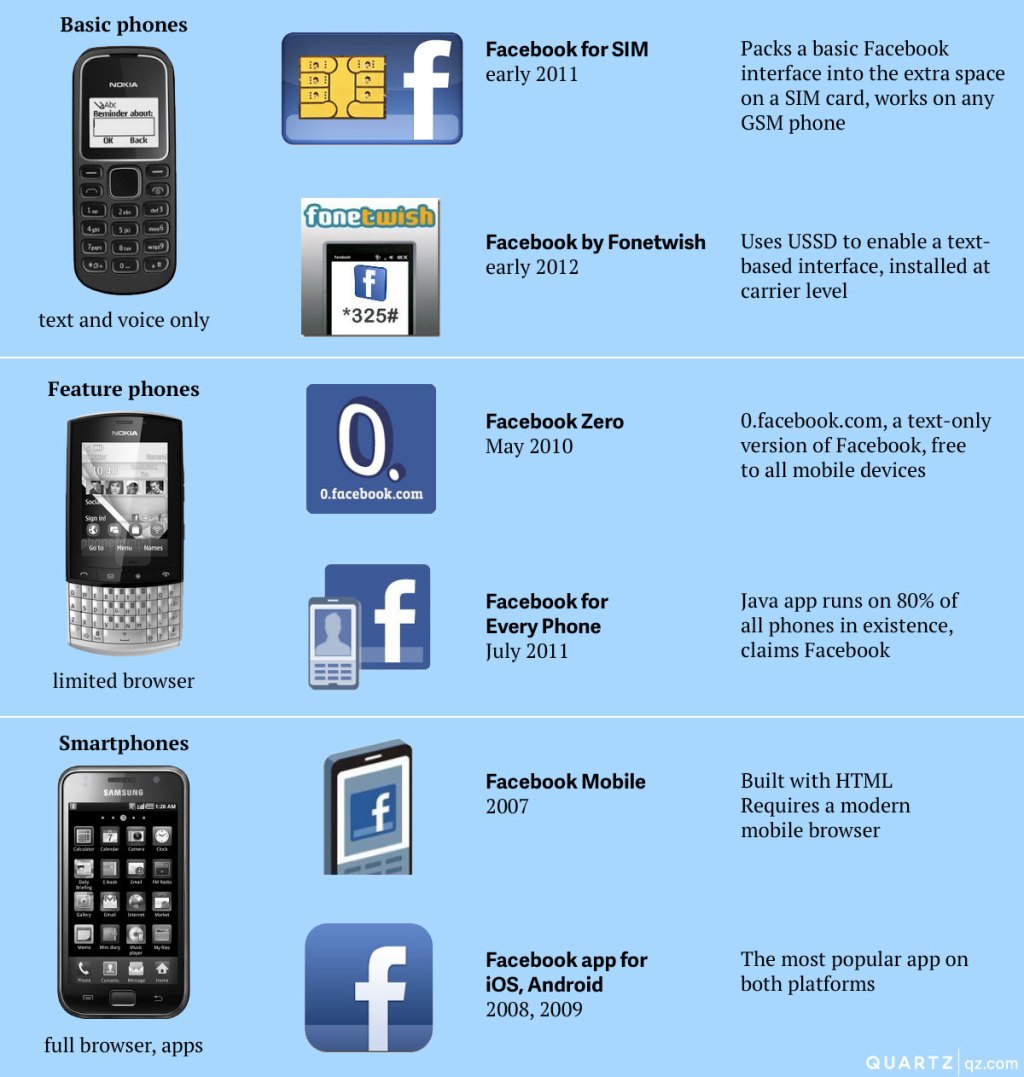Oliver Leistert introduced and moderated the session on the Mobile Use of Social Media with the often overlooked fact that Facebook nowadays has more mobile users than web users. This calls for a critical analysis of the Facebook platform expanding into the mobile market not only through apps but also through telecom infrastructures. Besides m.facebook.com, the mobile website for Facebook on smartphones, the platform has developed several other interfaces on top of its platform that do not require a smartphone and can be accessed using particular “dumb” phones. The first example is Zero Facebook, introduced in May 2010, which can be accessed through selected mobile operators free of charge. Facebook Zero uses the Wireless Application Protocol (WAP), an “old” mobile protocol which is not available anymore on most modern smartphones but is usually integrated in many so-called “dumb” phones. A second example is Facebook by Fonetwish which uses the USSD protocol:
Fonetwish is an USSD based interactive service which brings the power of internet to every mobile phone. Fonetwish provides access to facebook from any mobile phone without the requirement of any data(internet) connection. Just dial *325# from your mobile phone and get started, fonetwish provides all the major features of facebook like status update, wall post, friend requests, notifications along with the above fonetwish provides push notifications an innovative new feature by which your facebook notifications are pushed into your mobile handset automatically as and when they are generated. (Fonetwish)
These two examples (but also Facebook for SIM) show how Facebook gains mobile users, especially in countries where smartphones and dataplans are expensive and unavailable. Leighton Evans explains how 7 million mobile users have a different Facebook experience than I have, using the web-based interface, and how their commoditization is different by locking in traceable users with free airtime). The various ways in which Facebook expands its infrastructure into the material infrastructure of mobile providers requires a different political economy of mobile social media by looking into the materiality of mobile phones. The above-mentioned mobile interfaces add an interesting dynamic to what we have described as the Like Economy by expanding its platform into the material infrastructure of mobile operators.

For more information on Facebook’s mobile strategy beyond the smartphone see Quartz’ “Facebook’s plan to find its next billion users: convince them the internet and Facebook are the same.”